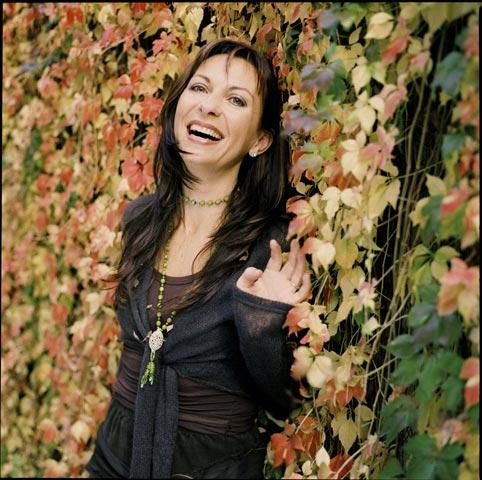Dessay brings dramatic insight to Celebrity Series recital
Recitals that explore the lives of women have been popular items over the past few seasons. Last April, Susan Graham offered a program that placed Schumann’s Frauenliebe und –lebenalongside works by French and German composers. Susanna Phillips’ recital earlier this season did something very similar by situating Schumann’s beloved song cycle within a wide-range of vocal repertoire. And in one of the highlights of the year, Boston Opera Collaborative paired Schumann’s cycle with Argento’s From the Diary of Virginia Woolf in eight intimately staged scenes.
Saturday night at Jordan Hall, soprano Natalie Dessay made her belated return to Boston with an equally intriguing program of music that explored the lives and loves of women. Fortunately her program avoided yet another performance of the Schumann, and she opted instead for arias and songs by Mozart, Gounod, Schubert, Debussy, Chausson, Bizet, and Pfitzner.
Since she stepped down from the operatic stage a few seasons ago, Dessay has turned to performing art song repertoire as well as jazz and straight theatre roles. Her voice has gone through some changes, and the years have robbed it of its once gleaming luster. Yet she remains an artist capable of finding a searching musicality in the music she sings, as was shown Saturday night.
To performers like Dessay, art songs are dramas in miniature, and she proved a fine character actress with these intimate works. Songs by Schubert captured the stinging melancholy of love gone wrong. “Gretchen am Spinnrade” was a study in hushed intensity. Dessay’s voice surged to radiant high notes as she portrayed a woman on the edge of despair. “Lied der Mignon” seemed to glow at a distance in its picture of unfulfilled longing. “Die junge Nonne” told of a nun who becomes enraptured with the thought of Christ. Dessay captured the character’s ecstasy through lines of breathy delicacy.
Her performance of Pfitzner’s cycle Alte Weisen brought a touch of humor to these poems about old customs. “Mir glänzen die Augen” unfolded in fits and starts as if a recitative. Moods also changed suddenly in “Ich fürcht’ nit Gespenster,” a song about a young woman who encounters a witch in the midnight forest. Other songs were playful and sarcastic in Dessay’s characterizations. “Wandl’ ich dem Morgentau” moved with a mix of humor and a tinge of sorrow; the ending had the intimacy of a prayer. These songs, too, provided room for Dessay to explore vocal shading. In “Röschen biß den Apfel an” she colored her lines with slight vocal slides.
French music, of course, is one of Dessay’s specialties. In Chausson’s “Chanson perpétuelle” her voice took on a warm resonance to capture the distant memories as portrayed in Charles Cros’ poem. Bizet’s farewell song “Adieux de l’hôtesse arabe” resonated with a quiet sadness. And in Debussy’s “Coquetterie posthume,’ Dessay’s character was coy even when singing about death.
Two arias by Mozart had more darkness than beaming lyricism. Susanna’s recitative and aria from Le nozze di Figaro was smooth and dreamy. “Ach, ich fühl’s” from Die Zauberflöte had a brief moment of coloratura flourish, which Dessay handled with grace. Her best singing came with the “Jewel Song” from Gounod’s Faust. There she displayed a radiant upper register for joyous phrases that captured the innocence of Marguerite as she gazed into a mirror.
Dessay could have had no better partner in pianist Philippe Cassard, her longtime accompanist. His playing was evocative of Schubert and Pfitzner’s dark scenes. In the French works his tone took on a deep, pearly quality. His two solo spotlights, Debussy’s Ondine and La fille aux cheveux de lin, unfolded in phrases that seemed to waft in the air like perfume.
Applause for these two musicians was long and rapturous. Dessay and Cassard rewarded listeners with four encores that had the same intimacy that characterized their evening’s performances. “Les filles de Cadix” from Delibes’ Chanson Espagnol sparkled with clarity, while Strauss’ “Breit über mein Haupt” glowed with reverential warmth. “Mes longs cheveux” from Debussy’s Pelléas et Mélisande and the death aria from Delibes’ Lakmé were pictures of haunting beauty that put the finishing touches on a fine recital.
The final classical music event of the Celebrity Series’ season will feature pianist Marc-André Hamelin in music by Haydn, Feinberg, Beethoven, Scriabin, and Chopin 8 p.m.Friday at Jordan Hall. celebrityseries.org; 617- 482-6661
Posted in Performances




